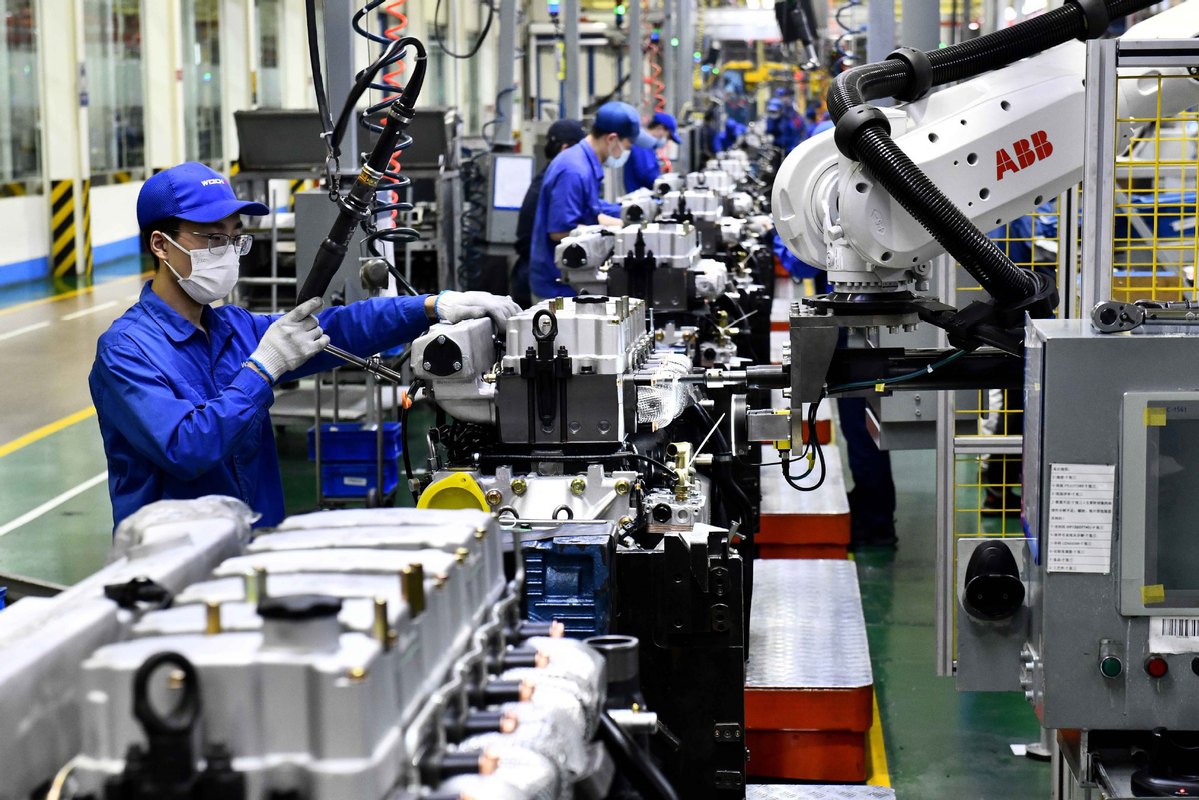
Inflation factors may not push the US Federal Reserve to tighten its monetary policy in the short term, but China nevertheless needs to watch out for possible changes in the Fed stance, experts said on Wednesday.
China also needs to keep its own monetary policy in shape so as to prevent inflationary pressures, they said.
Inflation in the United States has risen notably in recent months, but the rise has been on low readings relating to the early period of the COVID-19 pandemic.
The rebound in spending comes as the economy continues to reopen, said Fed Chairman Jerome Powell in his testimony to the US House of Representatives on Tuesday.
He was explaining the Fed's response to the COVID-19 pandemic.
Powell said inflation is expected to drop back toward the Fed's longer-term goal when the effects of supply shortage abate.
But rising inflation has not yet changed the US Fed's decision to keep its benchmark short-term lending rate anchored near zero, and it continues to buy at least $120 billion worth of bonds each month.
"Asian markets may inch higher as investors take comfort in the latest round of dovish comments from Fed speakers overnight," said Prakash Sakpal, a senior economist with ING Bank, a Dutch multinational financial services company headquartered in Amsterdam.
Fed officials assured market participants that rate hikes were not on the horizon just yet, while some speakers highlighted the need for more signs of a recovery on the jobs front before reversing the Fed's policy stance, said Sakpal.
When the world's major economies such as the United States and the United Kingdom emerge from the pandemic fallout and reopen their economies, the current surge in global commodity prices may further shoot up to record highs, said analysts.
In recent weeks, raw material prices and the producer price index-PPI-in China have risen sharply to multiyear highs as the country is a major importer and consumer of a broad range of industrial commodities.
Chinese monetary authorities have been aware of the global inflationary pressure, but the domestic monetary policy will remain stable with a neutral stance in the second half of this year, which means neither monetary easing nor tightening is likely, said Ming Ming, a senior analyst with CITIC Securities.
While room for tweaking the monetary policy may be limited, fiscal policy may take more responsibility for stabilizing economic growth, Ming said.
Yi Gang, governor of the People's Bank of China, the central bank, cautioned at a forum in Shanghai earlier this month that the country should "stay on high alert against both inflationary and deflationary pressures arising from different aspects".
He attributed the PPI surges this year partly to the low or even negative base of 2020 data.
The PBOC governor predicted that China's consumer inflation will rise gradually this year, but the year-on-year growth rate is expected to be lower than 2 percent.
Although the Fed's rate hikes may not come soon, economists foresee that the Fed may start its "tapering", or reduction of asset purchases, around year-end or at the beginning of 2022.
"The Fed still needs to make substantial progress on getting the economy back to full employment, but the taper timeline has become more visible," said David Chao, global market strategist for Asia-Pacific (excluding Japan) at Invesco.
If the Fed raises its key interest rates some time in the future, it would pull capital back to the US and the US dollar will strengthen, said Christina Zhu, economist at Moody's Analytics.
"Rises in US interest rates have been a threat to emerging markets' capital flows since the 1970s," she said.
